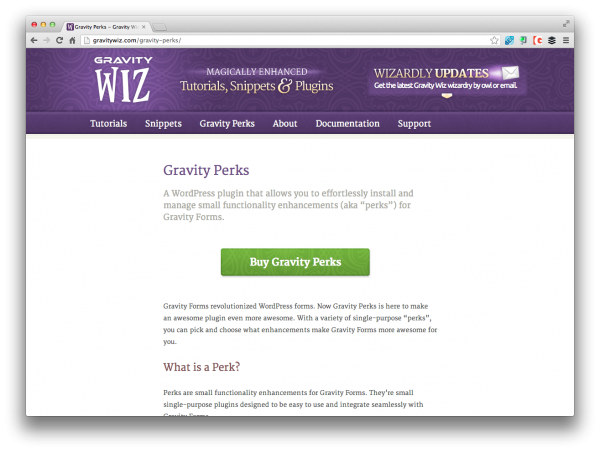Although it seems that many WordPress-based companies are moving away from affiliate programs it’s still not even close to global shift and will always be a big part of growing an online business, whether it’s WordPress or some other digital product.
It is, generally speaking, a very successful and strategically-proven method of capitalization. Heck, I’ve tried it multiple times for many different web-offerings and it’s been a good one!
But one question that’s come up time and time again is about employees taking affiliate income via their own personal properties and/or projects related to the core business’ product.
In other words, let’s say that Company A creates Product B with Affiliate Program C. Company A has a full staff of great employees who have their own Facebook, Twitter, and even blog sites where they promote Company A and Product B.
They also promote the Affiliate Program C with their own affiliate link, thus resulting in a double-dipping sort of action since they are being paid (contracted, salaried) with Company A and taking Product B’s financial margin and giving themselves another slice of the pie.

As you can see in the above quick mind-map, Employee X is taking advantage of the both Company A’s salary plus the Affiliate Program C income as well.
This isn’t so much a moral or ethical conversation (unless Company A has an explicit policy against it so that Employee X is breaking terms) but rather an open-ended question posed to our community and specifically business owners.
Do you have explicit policies telling employees or staff that this behavior is acceptable and legit? What are your thoughts about this if you were said Employee X?
To provide at least two examples, when I started 8BIT and then built the first version of Standard Theme which eventually became the flagship product, we had an affiliate program and I didn’t think it was “cool” that staff or employees had affiliate accounts, although I didn’t create an explicit policy around it.
There wasn’t any accountability or “checking up” since everyone agreed this was the acceptable behavior and we continued to roll-on without issue.
In another example, I was made aware of Gravity Perks via Post Status, which looks to be an awesome plugin that adds additional features to a great plugin Gravity Forms (we use it here on WP Daily – it is great!). After digging in a bit more (not too much digging obviously) it became clear that the developer of Gravity Perks was an employee of Gravity Forms as he expressed it explicitly on his About Page:
Well, hello there! My name is David Smith. Not a very wizardly name but yes, I am the wizard behind Gravity Wiz.
I’m a developer over at rocketgenius so I get to work onGravity Forms almost every day. I love it!
He also mentions at the end about his affiliate relationship:
Though I work for rocketgenius, Gravity Wiz is a personal project and the time and effort I put into it are all after hours. If you’d like to support the site and have not yet purchased Gravity Forms, be sure to click through one of the affiliate links (there’s a big one in the sidebar on every page) before you make the best decision of your life and buy Gravity Forms.
So there’s no mystery that if you purchase Gravity Forms via Gravity Wiz that David is going to get a nice bonus from his efforts of marketing his employer (Company A) and his employers product (Product B) via the affiliate program (Affiliate Program C).
Now, to be clear, there is zero intention of calling anyone out or getting anyone in trouble whatsoever – in fact, with the plainspoken text via David’s about page it appears that all is well in Gravity Form land and that this relationship is explicit and acceptable.
The point is to showcase two different perspectives of affiliate marketing your own employer’s products – neither a judgment call on which perspective is better or worse.
So far it appears that David has received a little less than 300 clicks through his affiliate link:
Which may have converted more than a handful of new customers to Gravity Forms.
Let’s say that David has done an incredible job of converting people via his sidebar and links on his blog and has converted 20% of his 283 clicks. That’s 56 sales. Assuming that he’s sold the bottom dollar offering at $99, he takes 20% via the affiliate payout, that’s 56*$99*.20 = $1,100 that he gets for his work of advertising (plus whatever he makes for selling Gravity Perks as the chief motivation).
Not bad, not bad. His employer get to keep $4,400 so it can be easily seen as a win-win all around as some of the new customers may never have been introduced to Gravity Forms until they encountered Gravity Perks.
On the flip-side, I can see some people saying that the $1,100 that goes to David should be distributed amongst the entire team since it’s really the collective work of the entire team that helps Gravity Forms build a business.
Perhaps even Gravity Forms has an internal employee perk and even competition for their employees to see who can help sell the most? You never know what’s going on behind the curtain and that could be one neat internal perk and incentive for employees to advertise the company through their own channels.
So what are your thoughts? Legit? Kosher? Or do you have another perspective that I haven’t shared explicitly here?



7 Comments
Join the conversation